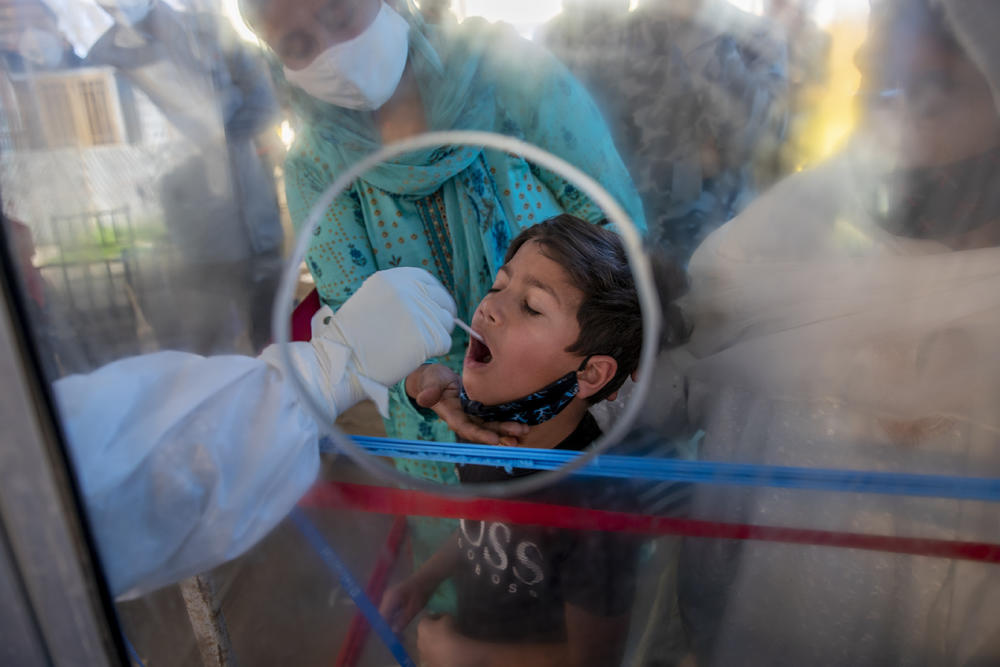
Caption
A health worker takes a mouth swab sample of a Kashmiri boy to test for COVID-19 in Srinagar, Indian controlled Kashmir, Saturday, May 8, 2021. Infections have swelled in India since February in a disastrous turn blamed on more contagious variants as well as government decisions to allow massive crowds to gather for religious festivals and political rallies.
Credit: Dar Yasin / AP

